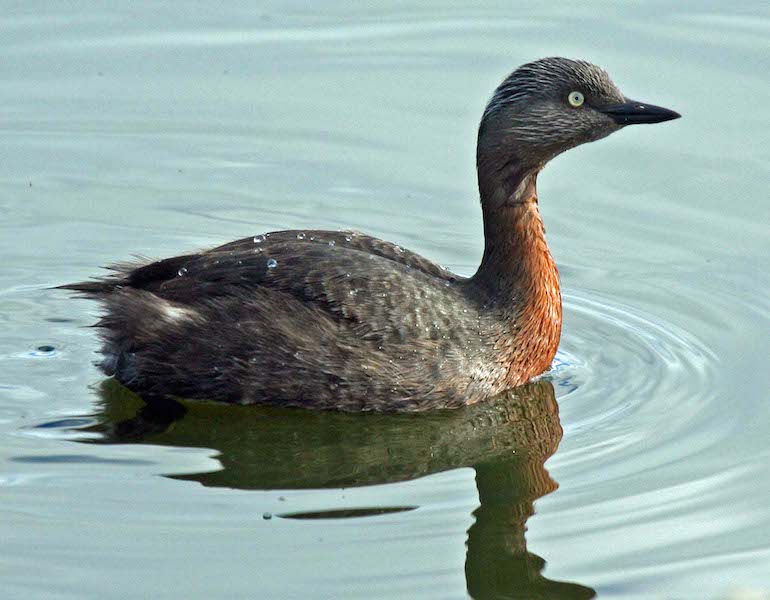
Anzac Day Service at Okere Falls
April 24, 2022
Lake Level Resource Consent Variation
May 14, 2022Help Protect Rotoiti’s Threatened Dabchicks
A Lake Rotorua area wide Dabchick (Weweia) count happened in early April 2022.
You might not be aware, but a Dabchick count happens annually on all lakes in the Rotorua area. Lake Rotoiti is the most important of these lakes as we have the largest population of these native water birds. Once you take time to stop and watch their uniqueness and character it is very distinctive. The Dabchick is smaller to other water birds, with a dark crown, brown body and a narrow red neck and front of breast. It’s fluffy bum feathers with often a patch of white is a sure giveaway, along with the fact that if you get too close it will dive down under water. Most other water birds will take flight,
The last full lake count in 2021 had Lake Rotoiti being home to 332 Dabchicks. It is estimated that fewer than 2000 individuals remain throughout N.Z, giving them a “near threatened” status. This year’s count done by volunteers early on the 7th of April before the south easterly wind kicked in confirmed our population to be static. The total count for 2022 was an estimate of 322 birds (a few areas were not countered due to a shortage of volunteers).
Next year we have a five-year count for ALL birds on all lakes in the Rotorua area. We need volunteers for Lake Rotoiti. It is just one morning. We need boats, bird spotters and recorders. If you are interested in learning more about your environment this is a perfect opportunity. Please email Sarah: sarahuhl01@gmail.com.
But if you can’t volunteer there are other things you can do to help:
* Keep rubbish and pollutants out of water ways
* Maintain a low boat/jet ski speed near shore
* Trap pests on your property
* Plant and maintain aquatic vegetation around the edge of the lake
In the words of David Attenborough “ The truth is: the natural world is the most precious thing we have, and we need to defend it.” The Dabchick is just one small example of this that we can save, and it is right here on our lake.


